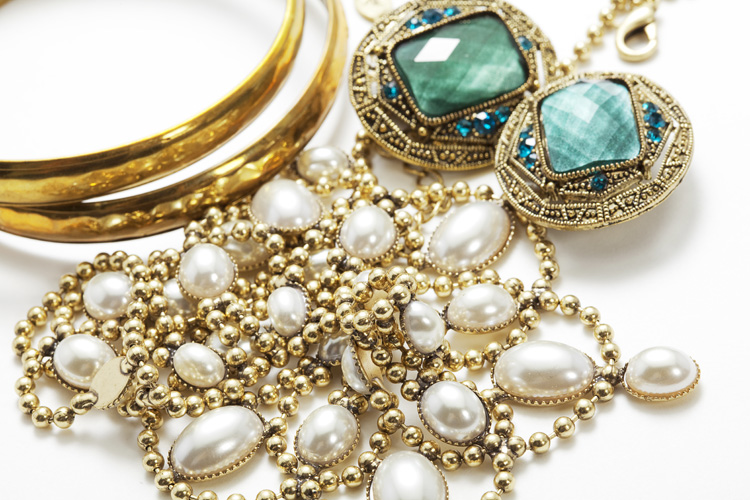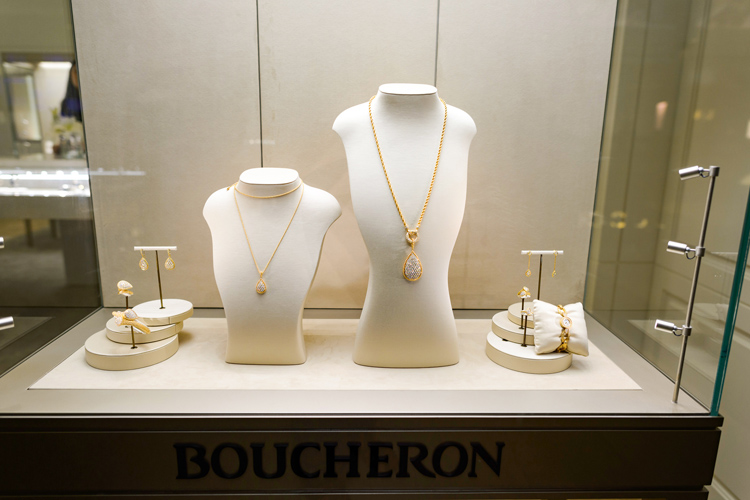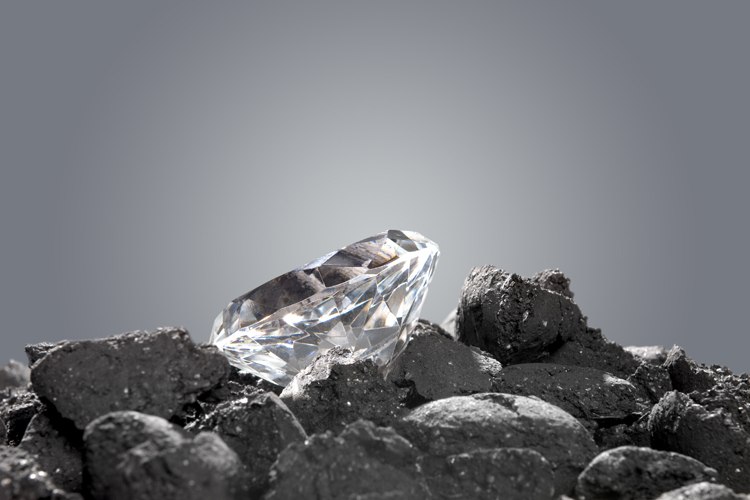Jewels are exciting, and our connection to them is often emotional. However, on a more rational level, they can also be a good source of investment. How and when should you buy and sell jewelry and gemstones?
The largest jewelry collections in the world belong to passionate enthusiasts and savvy investors.
Although different, both have two things in common: they have a deep understanding of the industry, and they all know that diamonds, pearls, and other gemstones play in volatile markets.
Gold, silver, and platinum are also bought as an investment, just like stock traders sell and buy company shares on a daily basis.
The act of buying jewelry is all about emotions and value. That is why it is paramount to know how and when to buy or sell jewels and gemstones.
It took Nature billions of years to create diamonds, and the difference between making a good, fair or bad deal – it applies to buying and selling – can be enormous.
There are a few critical concepts that you should take into consideration before starting a jewelry negotiation process. For example:
- What’s your main goal when buying a jewel?
- What would be the alternative investment?
- Will that new jewel or gem really be useful?
- You have been looking for that piece for how long?
- Do you value jewelry brands and designers when buying a jewel?
- What kind of jewelry can you afford based on your income?
- Will it be a one-time purchase, or do you see yourself wearing that piece in the future?
- Is jewelry something you truly value?
- Is jewelry investment something you are familiar with?
- What do you feel about jewelry wholesalers?

Buying Jewelry
Quality, trends, store location, time, service, and current market value are only a few variables that influence the price of the jewelry. The more you know about it, the better deal you will get.
Buying jewelry is something of a challenge. If you’re about to buy your first gemstone or emerald necklace, there are some things you should know.
Jewelry consumers are usually very well informed about the industry, the price of a craftsman’s work, and what drives a brand.
First of all, what are you looking for? Is it a gold diamond ring or a platinum diamond ring? How much are you willing to pay per carat? Once you’ve made up your mind, it’s time to shop around.
Visit jewelry stores, jewelry brands shops, and jewelry wholesalers.
By the time you’ve visited the fifth jewelry shop, you’ll be more accurately aware of the highest and lowest price of the type of piece you are searching for.
If you happen to know someone who has knowledge of precious stones, ask for his or her advice.
That way, you’ll be better informed about the details, like the weight, the size, the designer behind the pieces, etc.
When buying a gemstone, ask the seller if or how the gemstones were treated.
Were they improved to last longer with heat, bleach, irradiation, dye, or diffusion? Look deep into the heart of the gem. Does it show any fracture or internal imperfection?
A diamond’s weight in carats, for example, should be described in decimal or fractional parts of a carat. If the weight is given in decimal parts of a carat, the figure should be accurate to the last decimal place.
If you are planning to buy a diamond piece, ask for more information about laser-drilled operations that may have been made.
Advice for Investors
The US Federal Trade Commission published a few pieces of advice for buyers of fine jewelry pieces in jewelry shops:
- Ask about the refund and return policy before you buy;
- Check for the appropriate markings on metal jewelry;
- Ask whether the pearls are natural, cultured, or imitation;
- Ask whether a gemstone is natural, laboratory-created, or imitation;
- Ask whether the gemstone has been treated, if the change is permanent, and if special care is required;
- Make sure your sales receipt includes any information you relied on when making your purchase, such as the gem’s weight or size. Some jewelers may give you a grading report from a gemological laboratory;

Selling Jewelry
Discretion and information are key attributes when selling personal jewelry.
Certified appraisers are always an excellent call. Knowing market prices and the characteristics of your assets can help you get a fair deal. Time can often be a diamond’s best friend.
Jewelry must be well preserved, protected, and secured. The value of gems and precious stones involves several factors, such as personal value, historical value, market value, and nominal value.
When an elegant bracelet, necklace, or pendant is designed and built, the primary goal is for it to be sold and worn.
The owner of a jewel should keep it as treasure unless he or she is forced to sell it for financial reasons.
In cases where jewelry is considered an investment, the pieces are seen as any other tradable product or service.
Selling jewelry should follow a few steps, tips, and guidelines. Jewelers are more experienced than occasional private sellers.
Family Jewels
If you’ve decided to sell a family jewel or a personalized jewelry piece, don’t give away that you’re selling it. One of the secrets of keeping the jewelry price high is not to reveal the fact that you’re about to sell it.
The second step is to select at least eight jewelry wholesalers, shops, and specialized stores to evaluate your jewelry. Look for licensed jewelers only.
More than just getting a price range, you’ll understand and learn what the pros and cons of your precious asset are.
The weight, the purity, the imperfections, the uniqueness, and the level of interest the piece raises in the jewelry store are all relevant and useful information.
If you’re about to sell your jewelry online, avoid publishing too much personal data. Your real name, address, and mobile phone number should never be disclosed.
Another good practice is to open an exclusive email account for your jewelry transactions.
After all the previous steps, take a serious look at the gold, silver, and platinum market price fluctuations.
If you’re selling gold jewelry, do it during high cycles, but be mindful that when these precious metals are too high, diamonds and gems tend to value less.
Once you’re reaching a deal with a jewelry wholesaler or a private party, ask if it’s possible to track your jewel in the future.
If you think you may want your favorite gem back in your hands, knowing the name and contact of the new owner might be a good solution.
Gold, silver, platinum, and diamonds may be fairly evaluated, but that doesn’t happen with other gemstones.
If you know someone working in the jewelry industry, try to get his advice on making wise decisions. A certified jewelry appraiser can also be extremely useful.




